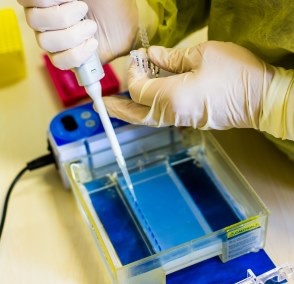The missions of the French National Reference Centers (NRC) are described in the Official Journal of the Republic of France (JO n°141 of June 18, 2016 text 10 of 118).
The missions are based on four main principles: Expertise, Advice, Epidemiological surveillance and Alerts.
Expertise
Expert missions of the NRC include:
- Identification and characterization of strains sent by biomedical analysis laboratories
- Identification or confirmation of viral strains for which identification techniques are not widely available. The NRC carries out such identification if these techniques are not available to the laboratories. The identification of viral strains and serological testing that are part of the daily routine of biomedical analysis laboratories are not sent to the NRC, except in rare circumstances, and in this case the laboratories are billed.
- Characterization of pathogenic strains under the monitoring of the NRC.
- Ownership of diagnostic techniques and/or identification and characterization techniques
The NRC manages the collected biological samples and associated databases under the conditions stipulated in Article L. 1413-5 of the French Public Health Code.
- Development or validation of diagnostic tests
The NRC plays a role in the development, optimization, validation, dissemination, and recommendations of medical laboratory testing (diagnostic testing, identification and/or typing techniques) concerning pathogens under their supervision.
The NRC ensures the development and/or validation of diagnostic techniques for emerging pathogens requiring urgent measures to control outbreaks and contributes to their dissemination to laboratories designated by the regional health authority (Agence Régional de Santé, ARS) or other responsible bodies, without delay and at the request of the Ministry of Health. When possible, the NRC contributes to the patenting of these innovative techniques (Référentiel des Actes Innovants hors Nomenclature, RIHN) or the registration of biomedical tests (Nomenclature des Actes de Biologie Médicale, NABM). The NRC plays a role in distributing specific reagents, if they are not available.
- Contribution to the assessment of antiviral susceptibility
- Input concerning the evaluation of sensitivity to antiviral agents
- Participation in the evaluation of viral inactivation procedures
- Provision of information and training and, if necessary, the preparation of manuals
Counselling/Advice
This activity is available to:
- Health professionals
- The National Public Health Agency, other French food safety agencies, the French National Health Authority (HAS), and the Ministry of Health
Counselling also involves participation in the development of prevention and control measures of infectious diseases, as well as providing answers to requests for expertise or surveys.
Epidemiological surveillance
The NRC is involved in monitoring the evolution and characteristics of infections. It carries out medical biology tests necessary for the surveillance of pathogens under their responsibility, particularly the characterization of strains. It also runs a network of laboratory correspondents who perform some of these analyses.
The minimum requirement of the NRC is to provide information on the following, in collaboration with the National Public Health Agency:
- Epidemiological information: age, sex, date, and type of sample, the notion of grouped cases
- Infections of nosocomial origin, if applicable
- Identification of redundant diagnoses concerning only one case
- Representativeness of identified cases based on the following criteria: geographical location, place and type of treatment, selection of specific strains that present interpretation difficulties
For infrequent infections, the NRC actively encourages laboratories to send all their strains isolated in French territory.
The NRC participates in the surveillance of pathogens resistance to antivirals.
The NRC contributes to the detection and analysis of nosocomial infections.
The NRC contributes to the study of population immunity and its evolution.
The NRC investigates epidemics (strain typing and comparison of strains isolated from patients and other sources).
The NRC contributes to an international surveillance network, particularly in Europe.
The NRC performs surveys at the request of the Ministry of Health or the National Public Health Agency.
Alerts
An alert is given for any abnormality to the National Public Health Agency, the Directorate General for Health (DGS) and, if necessary, the Regional Health Authority (ARS), particularly in the following instances:
- Increased frequency in the isolation of a virus, or the signaling of grouped cases of a disease
- Identification of a rare or emerging virus from a new pathogen
- Emergence of new clinical forms or a variation or mutation of a known pathogen
- Information concerning events of the same nature in foreign countries
